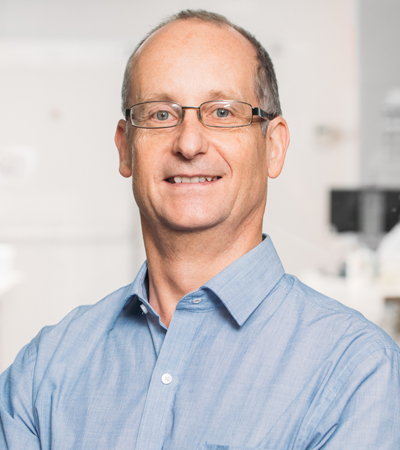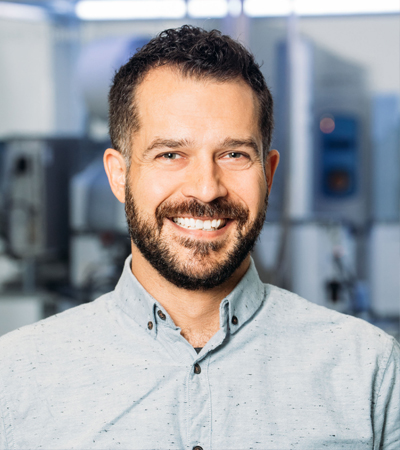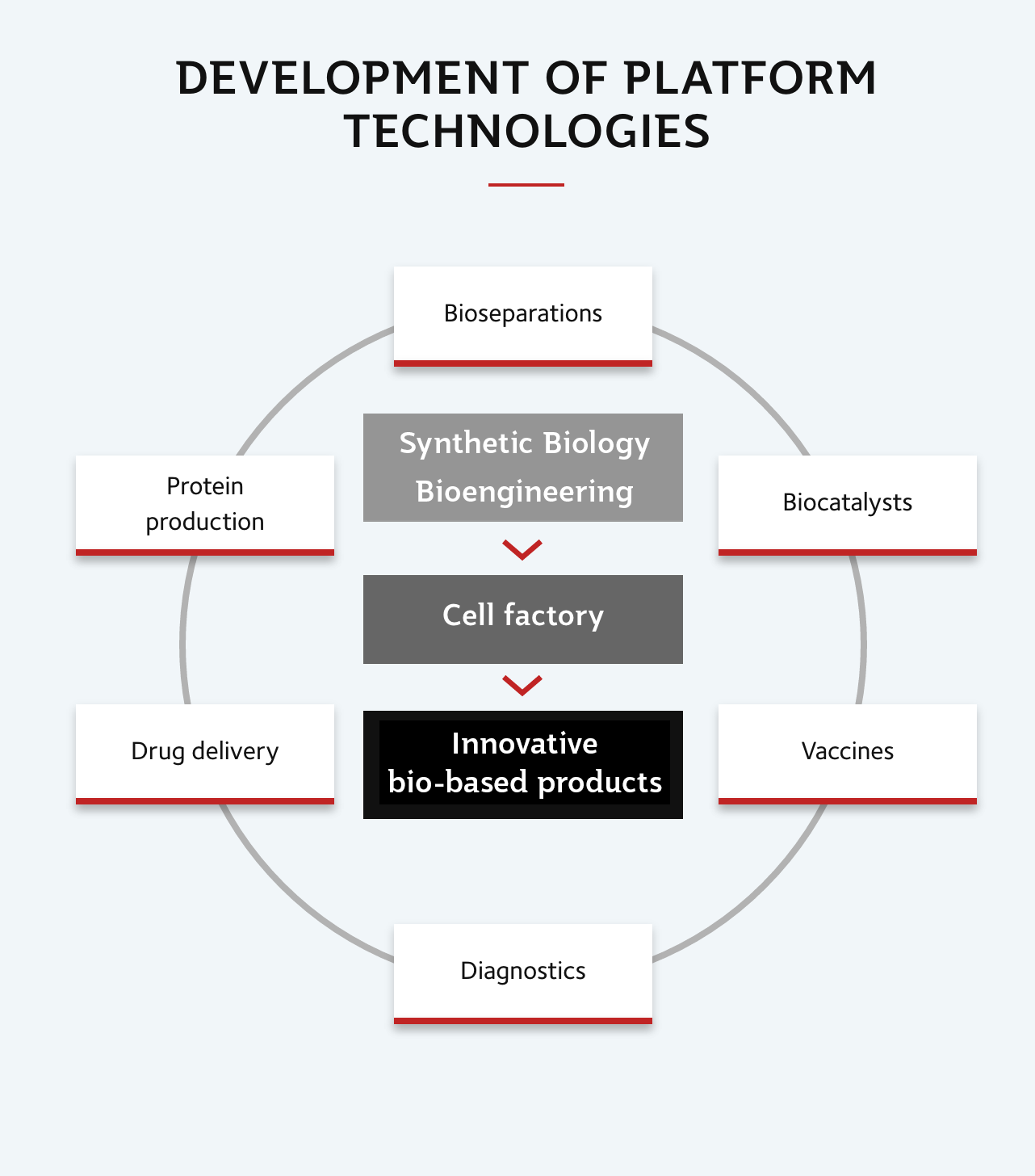Harnessing the power of biotechnology to tackle a range of health and environmental issues
At the Centre for Cell Factories and Biopolymers, our mission is to research and develop innovative functional materials and technologies that can provide solutions for global health and environmental challenges.
Our aim is to harness the capacity of biological systems to synthesise and assemble biologically active materials by applying bioengineering, synthetic biology and biotechnological approaches. The Centre forms part of the Griffith Institute for Drug Discovery.

Professor Bernd Rehm
Principal Research Leader
Professor Bernd Rehm is the Director of the Centre for Cell Factories and Biopolymers. He is author and coauthor of over 200 scientific publications, which have been cited over 10,000 times. Professor Rehm is also an inventor or co-inventor on 58 patent applications, 25 of which are granted patents.

Dr Frank Sainsbury
Research Leader
Dr Frank Sainsbury’s research uses protein engineering and biophysical techniques to study the self-assembly of proteins as tools in basic science and technology. He is an author on >50 scientific publications and inventor on 5 patents. He has expanded his research program on virus-like particles and protein surfactants for the design of biomimetic and hybrid biomaterials.
FUNDAMENTAL RESEARCH
Our research explores how microorganisms synthesise polymers and assemble biological nano-/micro-structures. We investigate the biosynthesis of polysaccharides and biopolyesters as well as the formation of biological supramolecular assemblies. While biopolymers are explored as functional biomaterials for medical and industrial applications, their synthesis steps also provide exciting new targets for antimicrobial treatment by impacting the formation of pathogen-associated capsular and biofilm polysaccharides.
RESEARCH FOCUS
A major research focus of ours is the design and development of innovative bio-based materials for uses as vaccines and in diagnostics. We apply a broad spectrum of molecular biological and biochemical methods, as well as imaging techniques, to investigate the molecular mechanisms of polymer synthesis and self-assembly of biological structures. New insights into biological nano-/micro-structure assembly and polymer production inform synthetic biology/bioengineering approaches to design and produce novel high-performance materials for applications such as drug delivery, vaccines, bioseparation resins, catalysts, diagnostic and research reagents.
Translational Research
New discoveries in biopolymer synthesis and self-assembly of biological structures will be translated into the design and production of high-value functional materials. We aim to develop platform technologies for the biotechnological manufacture of novel and competitive products.
A major focus is the design and biotechnological production of innovative bio-based materials for the prevention, treatment and diagnosis of diseases. Disease focus areas are bacterial and viral infections such as those caused by Mycobacterium tuberculosis, Pseudomonas aeruginosa, Neisseria meningitidis, Streptococcus pneumoniae, HCV and Dengue as well as cancer. Industrial applications implement the design and biotechnological manufacture of materials exhibiting properties suitable for applications in bioseparations, biocatalyst immobilisation, biosensor and bioremediation.

Vacancies
Multiple PhD scholarships are available, contact us for more information.
RESEARCH INFORMATION FOR POSTDOCTORAL STAFF AND PHD CANDIDATES
Our molecular biotechnological research is aimed at developing new technologies and products with commercial potential.
Our research topics include:
Disease prevention
Design and development of vaccines against infectious diseases such as meningitis, pneumonia, tuberculosis, and infections caused by Pseudomonas aeruginosa, Hepatitis C, Dengue virus
Journal articles
Bioengineering towards self-assembly of particulate vaccines
Disease diagnostics
Devising innovative nano-/micro-devices for disease diagnostics. Functionalised materials are bioengineered and designed for sensitive and specific detection of a range of diseases.
Journal articles
In Vivo Self-Assembly of Fluorescent Protein Microparticles Displaying Specific Binding Domains
Disease treatment
Molecular mechanisms of exopolymer biosynthesis to unravel targets for antibacterial treatment
Bacterial biofilm formation and properties
Biotechnological production of therapeutic proteins
Journal articles
Biological function of a polysaccharide degrading enzyme in the periplasm
Human Host Defense Peptide LL-37 Prevents Bacterial Biofilm Formation
Innovative bio-based materials
Research and development of biopolymer-based assemblies, material properties, applications and design space aiming at the establishment of platform technologies
Biological production of polysaccharides to obtain tailor made hydrogels for medical and industrial application
Bioprocess development towards the manufacture of innovative bio-based materials.
Journal articles
Synthetic biology towards the synthesis of custom-made polysaccharides
Alginate Polymerization and Modification Are Linked inPseudomonas aeruginosa